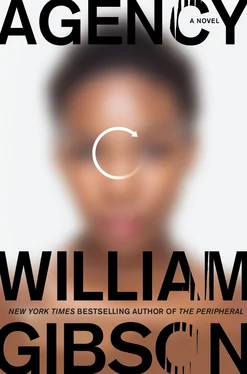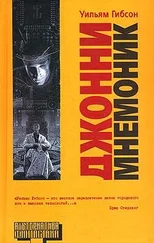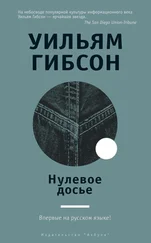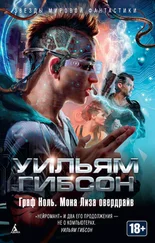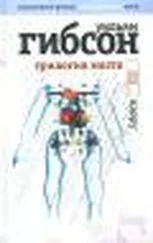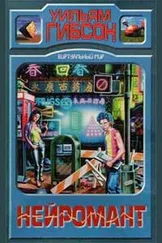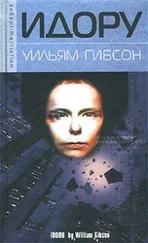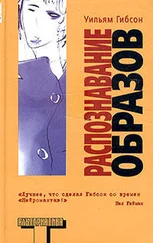“Actually,” said Rainey, “you’re right.”
“I am?”
“How familiar are you with London?”
“Half a dozen times? Last was just before some people here wanted to vote you out of the EU.”
“I’d thought we might take Thomas for a stroll,” Rainey said, “to help you acclimatize to the peri, and get a look at London. But it seems we have Wilf’s boss parked in our mews. Wants us to join her. She can explain the unexpected nature of technology. I can fill in as needed, try to help. Wilf can be part of that from here, while he minds Thomas. Ash as well.” She was looking at the man in the matte silver headpiece, causing Verity to wonder if he were wearing it to amuse their child. “Are there mirrors in her car?” Rainey asked him.
“Not if it’s still in Winston’s waistcoat mode,” he said.
Rainey pulled on a dark jacket. “There are mirrors in the lift, all three walls, waist up,” she said to Verity. “Look at the floor, or you might trigger the dysmorphia, if that isn’t another fable about peris. Save mirrors for when we’re back up here.”
And out the door then, Verity exchanging a look with the man who was Wilf, before following Rainey, the back of whose head she asked, “Where did you say this is?”
“Fitzrovia.”
“Don’t know it.”
“Adjacent to Bloomsbury,” Rainey said. An elevator door opened. “Remember, eyes on the floor,” stepping back to allow Verity in, then getting in behind her before the door closed. “No mirrors in the lobby.”
During the brief descent, Verity focused on the black-and-white toes of the peripheral’s shoes.
The door opened.
The lobby was small, roughly the size of Fabricant Fang’s foyer, though any resemblance ended there. “How long have you lived here?” Verity asked, feeling the need to say something.
“Since I was a month pregnant. Wilf lived in hotels, when we first knew one another as colleagues, and on into our getting together.”
“Your job’s in Canada?”
“Toronto. I moved here to be with Wilf. My firm wants a peripheral of me there, to interact with clients, but I’d quit before I’d do that.” She raised her hand, which caused the blue-painted, glass-paned entrance door to open, admitting cold, damp air.
“Of you?”
“One that looks and sounds like me. I won’t have it, though. As a parent.”
“Why?”
“Fear of it surviving me, after an accident or something.” She turned up her jacket’s collar. “The effect on Thomas. Terrible for children. Not as though it hasn’t happened, unfortunately, so the risk’s not hypothetical.”
With no idea of how to respond, Verity looked down again, discovering her borrowed body’s jacket was something martial-artsy, in a thin dark fabric.
“Don’t worry,” Rainey said, seeing Verity notice the jacket, “it’s already heating up.” They stepped out together. “If I were gone, and there was something that looked exactly the way Thomas recalled me, but didn’t age—”
“Didn’t age?”
“They do, of course,” Rainey said, “but much more slowly.”
Rainey’s white-painted building, Verity saw, looking around, sealed the end of an alley, one that narrowed, oddly, toward what she took to be a brightly lit major artery. “What street’s that?”
“Tottenham Court Road,” said Rainey, her back to it.
“You said ‘full sensorium’?”
“Yes.”
“Can’t smell it.”
“Smell what?”
“London. I don’t hear it, either. No traffic. And nothing’s passed by, on the street, since we stepped out.” Beyond Rainey, a third of the way to what she’d said was Tottenham Court Road, a vehicle pixelated into apparent existence, looking something like the wingless fuselage of a vintage aircraft. “What’s that?”
“Her car.”
“Whose?”
“Lowbeer’s.”
“A hologram of it?”
“No,” said Rainey, “you saw it decloak.”
The term reminded Verity of Stets being pitched digital camouflage schemes. Rainey started toward it, so Verity followed, catching up. And still nothing passed by, out on Tottenham Court Road, not even a pedestrian. The air was fresher than the Mission’s, but colder. The peripheral’s jacket, though, did seem to have warmed up.
Now a door was opening, in the windowless side of the black car, van, whatever it was. A figure emerged, featureless against light within. Slender, broad-shouldered, in an elegantly mannish tailored suit. “Welcome to London,” said the woman, who Verity now saw was older, her face pink in the light from the car’s interior. Her white hair was quite short, except for a steeply upswept bouffant forelock. “How’s arrival treating you?”
“I’m told it could be worse,” Verity said. She looked back to Rainey’s building, seeing Wilf outlined in their third-floor living room window.
“Come in, please,” the woman said, indicating the car. “I’m Detective Inspector Ainsley Lowbeer, by the way, Metropolitan Police.”
“Police?” Verity asked.
“After a fashion.” Moving aside to allow Rainey to step up, into the vehicle. “Please.” Verity followed Rainey, finding a single folding step extended for the purpose. “Any seat at the table,” from behind them, “thank you.”
The concave interior walls were a glossy beige. No wheel, no driver’s seat, no evident controls, or, for that matter, windows or windshield. The table, oval dark wood the size of a large platter, level with the floor, was centered, surrounded by four small green leather armchairs that seemed to have partially sunken into the floor, in a carpeted nest. A serious-looking arrangement, oddly cozy yet somehow military.
As they seated themselves, the door closed.
“Welcome.” The white-haired woman, who had unusually blue eyes, was seated opposite Verity. “Please accept my apologies for having been largely responsible for the stressful week you’ve been having.”
“Responsible?”
“I’m afraid so.”
“How?”
“Ash and I were instrumental in Cursion having Tulpagenics hire you. Do you mind heights, particularly?”
“Heights?”
“I’d like to take us up now.”
“Up?” As something seemed to press down, however silently, on the roof of the vehicle, reminding her of the delivery of her Muji bag to Kathy Fang’s rooftop nap-cube, but silent, and lacking this sense of substantial yet very precise contact.
When Verity used the peripheral, Netherton decided, watching it now, it no longer resembled Flynne. Which was really for the best, though it made him miss Flynne.
He stood at the window, as it followed Rainey into Lowbeer’s car, Lowbeer behind them. Not that he could have pointed to any specific difference in its posture or gait, with Verity using it, but his mind was somehow capable of the distinction. Surveillance programs plucked individuals from crowds, he knew, on just that basis.
Having seen it controlled by Hermès AI, earlier, had reminded him of how few opportunities to see one another he and Flynne now had. He was married, a parent, as was she, and then there was her demanding role in Lowbeer’s ongoing manipulation of the course of her native stub.
He closed his eyes, back into the feed from the drone, to find Verity seated as he’d last seen her, on the pale couch in the San Francisco hotel, eyes shut, beneath the makeshift controller. Stetson Howell, her venture capitalist, wasn’t in sight, nor was his fiancée, the French architect. Virgil, the man who’d met the van in front of the hotel, had pulled up an armchair and now sat facing Verity, engrossed with the screen of his manual phone.
Opening his eyes, Netherton saw a quadcopter descending silently into Alfred Mews, its black rectangular platform the length of Lowbeer’s car. He’d only known her to use this infrequently, and he’d always been her passenger at the time, so had never actually seen the thing before. A few dead leaves whirled frantically, as it secured the car. He regretted Thomas missing this.
Читать дальше
